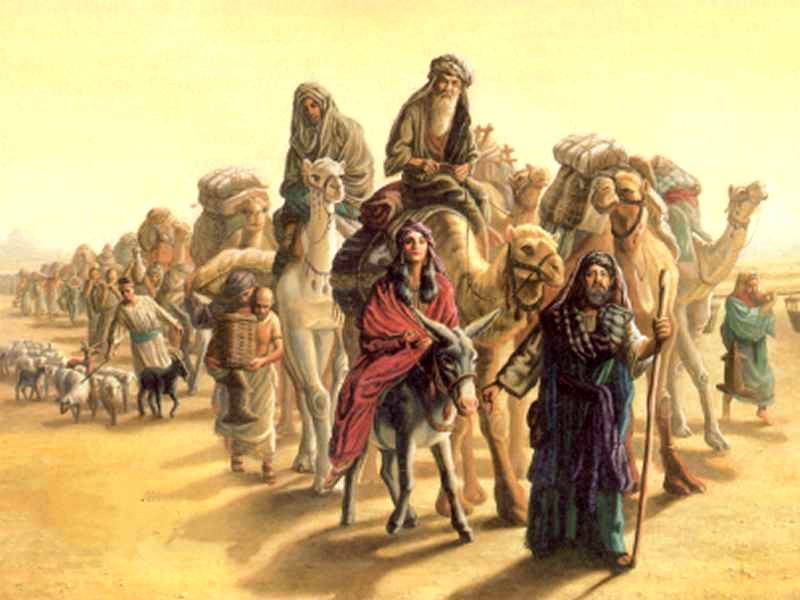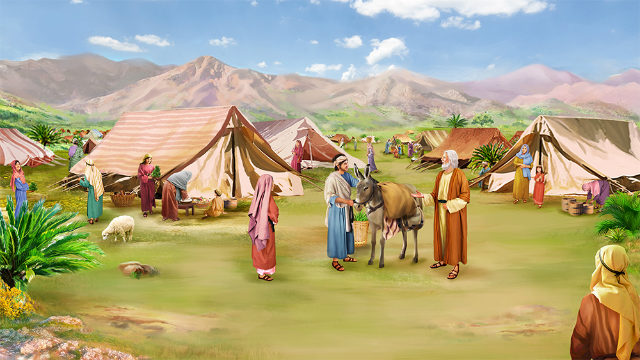Is Lot The Brother Of Abram
Biblical Historical Studies:


- Abram (48 Occurrences) Genesis 11:27 Now this is the history of the generations of Terah. Terah became the father of Abram, Nahor, and Haran.Haran became the father of Lot. (WEB KJV JPS ASV BBE DBY WBS YLT NAS RSV NIV) Genesis 11:29 Abram and Nahor took wives. The name of Abram's wife was Sarai, and the name of Nahor's wife, Milcah, the daughter of Haran who was also the father of Iscah.
- 12 And they took Lot, Abram's brother's son, who dwelt in Sodom, and his goods, and departed. 13 And there came one that had escaped, and told Abram the Hebrew; for he dwelt in the plain of Mamre the Amorite, brother of Eshcol, and brother of Aner: and these were confederate with Abram.
Abram And Lot Craft

Sarah's Relationship To Abraham
Abram and Sarai prospered materially but had no children. Abram thought to leave his estate to a trusted servant, but God promised him a son and heir. When he was 86 years old, Sarai suggested and Abram agreed that a practical way to have a child was through Sarai’s servant Hagar. Hagar conceived right away and in time Ishmael was born. And they took Lot, Abram 's brother's son, who dwelt in Sodom, and his goods, and departed. Genesis 14:13 View whole chapter See verse in context And there came one that had escaped, and told Abram the Hebrew; for he dwelt in the plain of Mamre the Amorite, brother of Eshcol, and brother of Aner: and these were confederate with Abram.
What seems to support a belief that Sarah’s his sister is when Abraham holds fast to that story as Abimelech interrogates him. And Abimelech said to Abraham, “What sawest thou, that thou hast done this thing?” And Abraham said, “Because I thought surely the fear of Elohim is not in this place and they will slay me for my wife's sake. And yet indeed she is my sister; she is the daughter of my father, but not the daughter of my mother; and she became my wife. And it came to pass, when Elohim caused me to wander from my father's house that I said unto her, ‘This is thy kindness which thou shalt shew unto me. At every place whither we shall come, say of me, He is my brother.’” And Abimelech took sheep, oxen, men servants and women servants, and gave them to Abraham, and restored him Sarah his wife. (Gen. 20:10-14)
Let’s examine if Scripture supports Abraham’s statement that Sarah is his “half-sister,” that is, his father’s daughter by a different mother. “Now these are the generations of Terah. Terah begat Abram, Nahor and Haran, and Haran begat Lot.” (Gen. 11:27) Abram, Nahor and Haran are all brothers. There is no mention of whether they had the same mother or not. Note well that Lot is Abram’s nephew through the line of Haran.
“And Haran died before his father Terah in the land of his nativity, in Ur of the Chaldees. Abram and Nahor took them wives. The name of Abram's wife was Sarai; and the name of Nahor's wife, Milcah, the daughter of Haran, the father of Milcah, and the father of Iscah. (Gen. 11:28-29) When Haran exits the world his children become fatherless and likely vulnerable. Grandpa Terah may have addressed this situation by taking Lot under his wing and by finding husbands for Haran’s daughters. The husbands would then become responsible for Haran’s girls. Indeed, Scripture records that Nahor took Milcah as a wife. As Haran’s daughter, she was also his niece.
Abram also took a wife, Sarai. Where did she come from? Scripture seems silent on her lineage. Or is it? Look closely at verse 29. Why does it say Milcah is the daughter of Haran and then repeats that fact by saying Haran is the father of Milcah. And who is this Iscah who Haran also fathered? Is it possible that the KJV translated this relationship in a garbled manner? Could Haran also be the father of Sarai? Could Sarai (which by name implies a Hebrew princess) also be known as Iscah (meaning “to watch”)? If so, then Abram, like brother Nahor, married his niece.
Consider this further, “And Terah took Abram his son, and Lot the son of Haran his son's son, and Sarai his daughter in law, his son Abram's wife; and they went forth with them from Ur of the Chaldees, to go into the land of Canaan; and they came unto Haran, and dwelt there.” (Gen. 11:31) Why call Sarai daughter-in-law to Terah, if she is also his daughter? Why would he even marry his daughter to one of his sons? This doesn’t make sense. Yet many traditionally teach that Sarah is Abraham’s sister based upon one quote in scripture, disregarding other illuminating verses.
As his father’s granddaughter, Sarah can be described as a Hebrew “sister” (ahot, H269) to indicate a family blood relationship. Sister can also describe a relationship in an ecclesiastical sense like when I refer to my “brothers and sisters” at Bet Yeshurun Assembly. In Sarah’s case, she held Abraham’s spiritual (ecclesial) beliefs and she likely was closely related by blood line, e.g. his niece.
Does it matter if Sarah is Abraham’s sister? Is my question in the article title even important? I felt compelled to do this scriptural study because the thought that Abraham and Sarah were brother and sister troubled my spirit. If true, someone might claim that Yahshuah’s hereditary line is an incestuous one. Torah clearly prohibits a relationship between a father’s son and daughter (Lev. 18:9). One might claim that our Messiah is blemished based upon His being a descendant of Abraham’s sister. My response to such blasphemy is that Abraham finally spoke the truth to Abimelech: (1) Sarah was his wife; (2) She wasn’t the birthed daughter of his mother; (3) Sarah was a “daughter” (which we would call “granddaughter” in modern terminology) of his father; and (4) Sarah was a sister in a spiritual, ecclesiastical sense. While Sarah very well could be Abraham’s niece, she unlikely was his half-sister, and she was most certainly his wife!